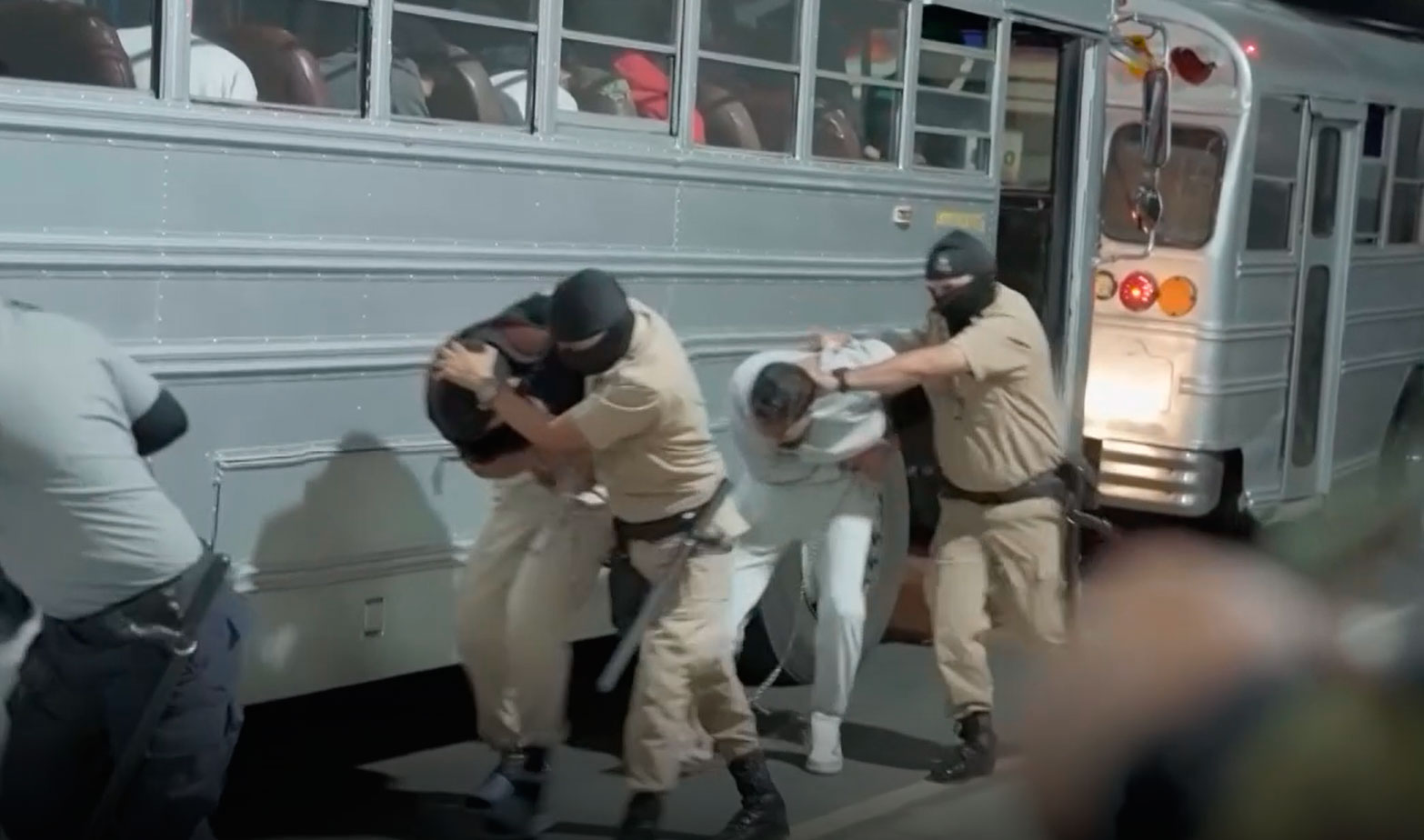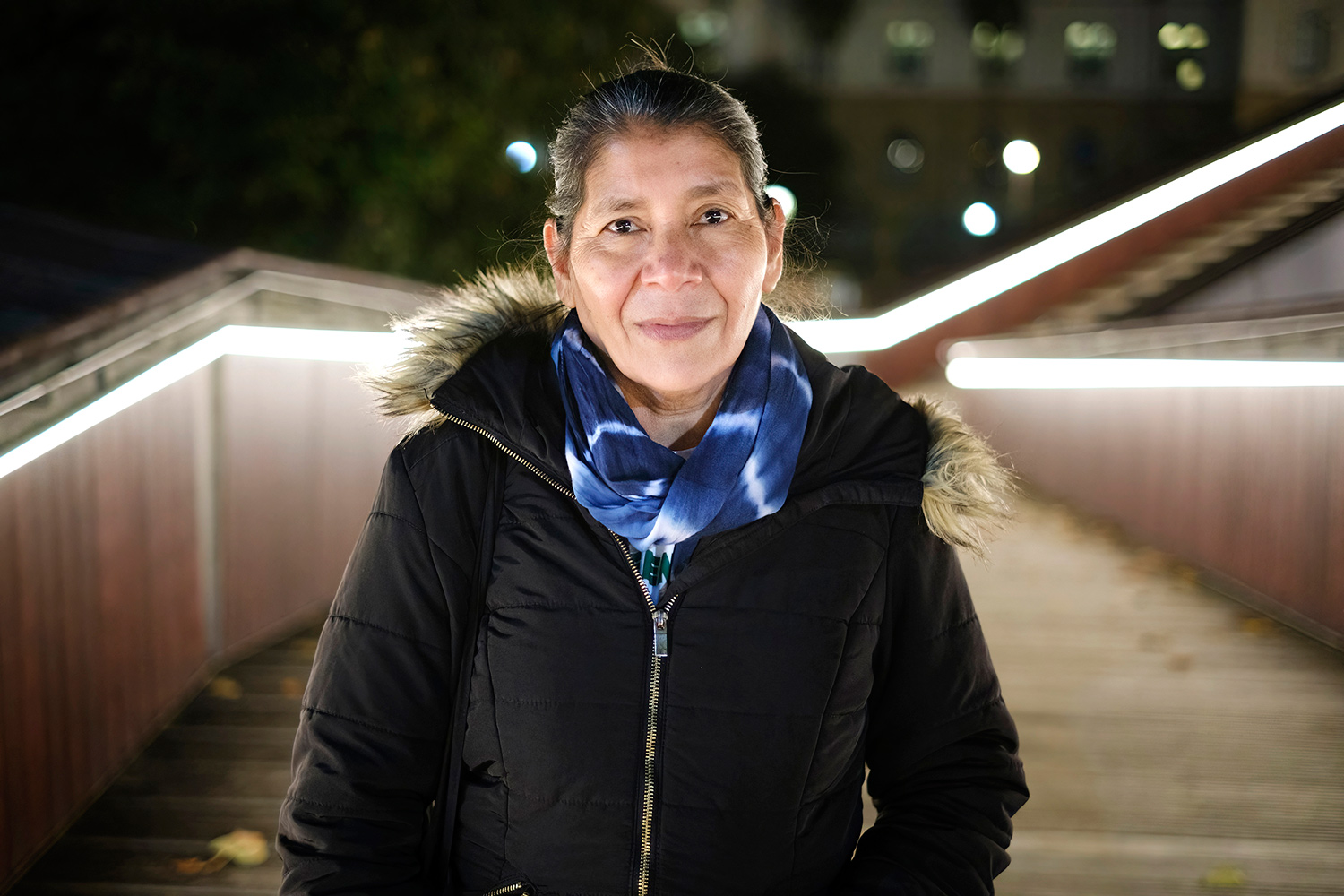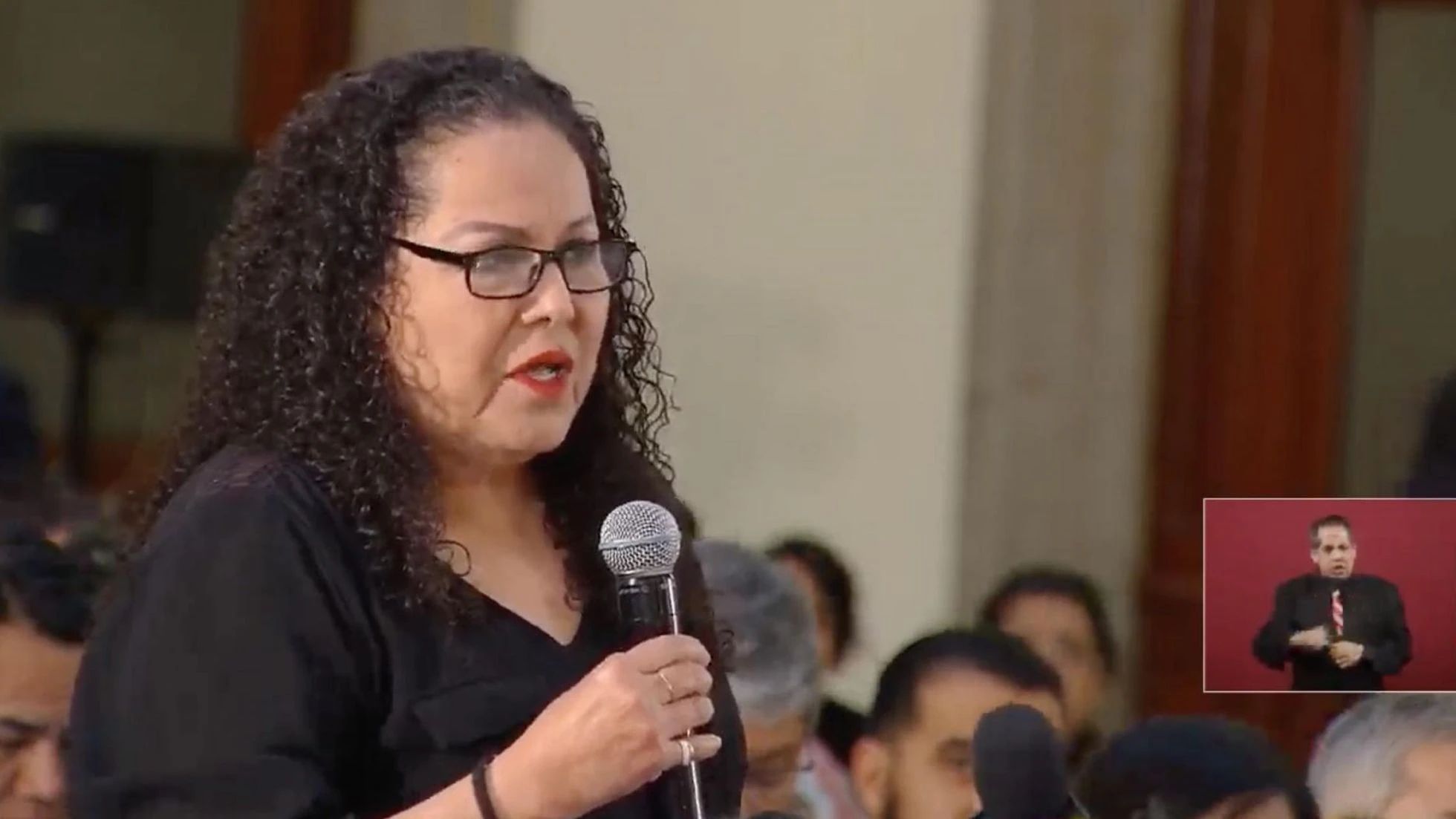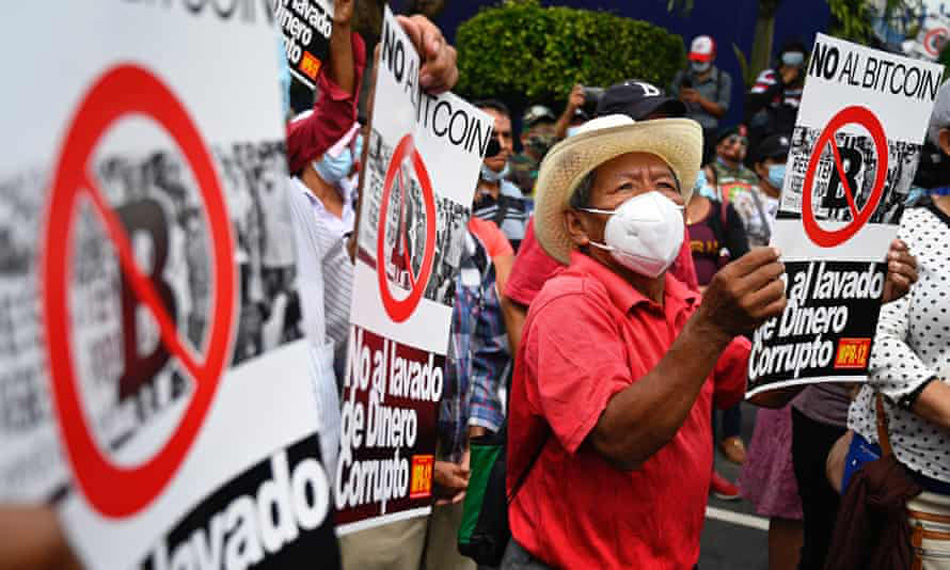Hooked on the claws of Nayib Bukele
- The outcome of the elections has not been taken with surprise in El Salvador: he who has been president in the last five years will continue in the other five years. He is the country’s first president to achieve re-election, not least because the Constitution prohibits it. But, in the company of the judiciary, he takes office again. It has achieved this in an emergency situation: already two years of suspension of human rights in the country, with more than 70,000 detainees. Nayib Bukel remains unaffected by saying that he has won 85% of the votes and has crowned himself. And what does not match him makes him an enemy of the country. “All opposition has become dusty,” he said on the election night of February 4.

El Salvador's present is a black and white portrait. Black white, not because it's retrospective, but because there's only black or white in the frame. In the elections on 4 February there were many options, many papers and colors, and the president and the parliamentary members voted. But in practice it has not been like this: Loops and peace, or barbarism, were the choices of the Salvadorans. Or so it looked, and they sold it.
Buclé appeared on the national scene as a promise of the new policy five years ago. He was previously mayor of Nuevo Cuscatlan, a city adjacent to San Salvador with a remarkable wealth. He won the victory of the FMLN, of the former guerrillas. From there he jumped to San Salvador, the capital, with the FMLN. During his stay in this Mayor there were clashes between the party and him, from whom he was expelled. However, this did not stop Bufé, and in his political career a step further, he appeared as president of the country. But nothing.
This situation led him to create his party: New Ideas. And that same name was his main campaign: the opposite of bipartisanship, to new ideas. The party, newly founded for the 2019 elections, could not present itself: The Democratic Change party supported his candidature, the left side of the centre. This did not work either, because the High Court of Justice suspended this party. In the absence of short electoral time, he had to stand for election with the coalition on the right of the GANA centre (Grand Alliance for National Unity). He obtained an absolute majority in these last elections.
This year they have been no less. According to the first reports, it obtained 1.3 million votes and will have an absolute majority in Parliament: Buel proclaimed an absolute majority on election night before making all the results public. In fact, the rapid knowledge of the data, even without ending the report, has also generated complaints of fraud among the citizens. However, it breaks and nullifies the binomial of the two major parties (the left-wing FMLN and the right-wing ARENA) until their arrival in power. Both parties have also appeared in the elections on February 4, and on the far right, Salvadoran Patriot Fraternity; on the right and very close to ARENA, Solidarity Force; and on the left, Our Time. However, these aspects obtain a very low percentage of votes: Our time alone has passed by 15,000 votes.

But neither the two main previous aspects of Bufete are better: When Bufé was elected president for the first time, in 2019, the FMLN rose from 1.3 million votes to 300,000. This year it has achieved 100,000. The decline is remarkable. But it has been worse in the case of ARENA: in the last elections it received 857,000 votes, compared with 97,000 this year, according to the provisional results.
So the other options have been null and void because Nayib Bukele owns the country. “The idea of the third road, which would end polarization, served in the previous elections. I think we have forgotten that today, because there is no alternative. She is the only option,” explains anthropologist Maya Olivares. The majority of Parliament, in its favour, has also influenced the judiciary and has been authorised to re-elect judges in its favour, so far prohibited by six articles of the country’s Constitution. The issue comes from 2021, when the modifications to the High Court of Justice were made. The tactic used for this is the authorisation of six months before the elections, so the Constitutional Court of the High Court of Justice approves re-election.
The country has been divided into two: those who have endorsed this last reading of the Constitution and have placed all their confidence in the new government of Bufete; and those who ask about the situation complain of affection. There have been cases of corruption, gang dealing and unconstitutionality itself. But Ox knows his country well and has pressed the right keys. It has succeeded in separating the country and has criminalised those in the wrong part.
The ghost of violence
At the center of that polarization, or even at the center, there is violence. That's what anthropologist Maya Olivares thinks. “Everything has to do with the narratives of the legitimization of violence. Human rights are understood within a triangle: security, democracy and human rights. And it is understood that rights must be violated in order to guarantee security. States make decisions in the name of security.”
The first decision taken by the Bufete government was to allow residents to report. "All it does is completely destroy the Community bond"
From this understanding came the exceptional situation still in force in March 2022. But even though Buitel has pushed the situation to the extreme and has militarized and limited the country, repressive security policies are not news in El Salvador. “Since the 1992 Peace Accords, security policies have always been repressive. It’s nothing new for Buel to go military, they’ve pulled it out in all security plans,” explains Olivares.
Ox, therefore, has not produced a paradigm shift as such. Violence is a structural problem in the country. Historically, the criminal gangs have been the actors that have spread violence in the country and in Central America. For many years, El Salvador, Honduras and Guatemala have been the most violent countries without war. The data also show this, in El Salvador itself, because when these gangs broke their fires, hundreds of deaths were recorded: In 2015, for example, there were 105 killings per 100,000 inhabitants. For example, according to the latest data, in 2023 it was reduced to three.
In this context, violent struggle has been the basis of most decisions taken by Governments. “There are those who ironically say that in El Salvador there are three gangs: the letters, referring to Mara Salvatrucha, the numbers for Barrio 18 and the three letters by PNC (National Civil Police),” says Roberto Valencia, a journalist from the Basque Country based in El Salvador, in his book Carta from Zacatraz. And that is precisely what Buel has reinforced. This time it has done so without measures: “The change is that this time the military has left without chains,” says Olivares. The anthropologist agrees with Valencia: “It has gone from social violence to state violence: the victim is different. In the past, gangs and policemen were also feeding. But today there are cops and soldiers the figure of fear.”
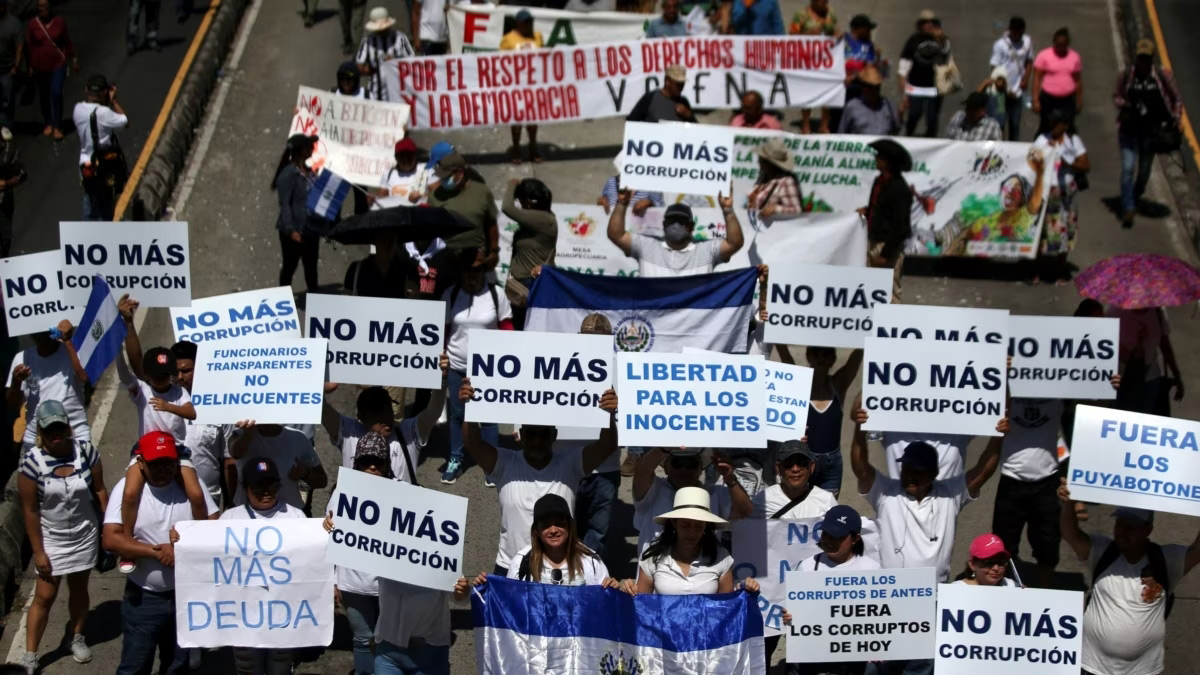
Victims, lateral damage
It is twenty months since Aidee Márquez last saw his nephew [whose name has remained hidden for his protection]. One morning they saw many unknown cars pass by in front of the house and, although it was strange, it did not matter: They had Mother's Day food, and that was getting ready. After the meal was over, the people who had seen in these cars approached the house, told their nephew's name and took him: “They didn’t explain anything to us. We asked them if they had order and they didn’t teach us anything.” Since then, almost two years have passed, they have not spoken to their nephew and believe that he is in a prison at the other end of the country, because they have not spoken to him by telephone. The family is now in charge of two children of the detainee: Daughter of 22 and son of 14. They keep in mind the day of their mother's arrest, as well as the events, as the police showed themselves in the middle of the night asking for their son. The reason for bringing his mother, the same as the thousands of people detained in the country: belonging to an illegal association.
Olivares has attended cases similar to those of Marqueza in the social organization Servicio Social Pasionista (SSPS) from the human rights issue. As Márquez ' s nephew, more than 70,000 people have been arrested on the same charge and the Government itself has acknowledged that many of them (6,000) were wrongfully committed. Olivares argues that these mass arrests are based on a policy of revenge, that repression has been suffered by many other people in exchange for gang violence: "It's easy for people to say, "Get him in jail." No matter if a person is innocent, the other culprits deserve it.”
They are therefore collateral damage: “6,000 people have been imprisoned for no reason and then advertised saying they have been released. As if the arrest did not affect him and others, but many of the detainees are those who bring money home. How do you expect a detention not to affect a family or community? They are very disconnected from reality,” says anthropologist Olivares.
But this vision of the government has been done by many people, that is what Olivares has seen, even those who have suffered and stopped an emergency situation. “Many people say the emergency situation is fine, even those who have been arrested.” The victims who have been in favour also say that they have to stop the “bad”, but that in that detention of the “bad” has involved many people without reason: “Many detainees have been victims of gangs and detained under this argument.”
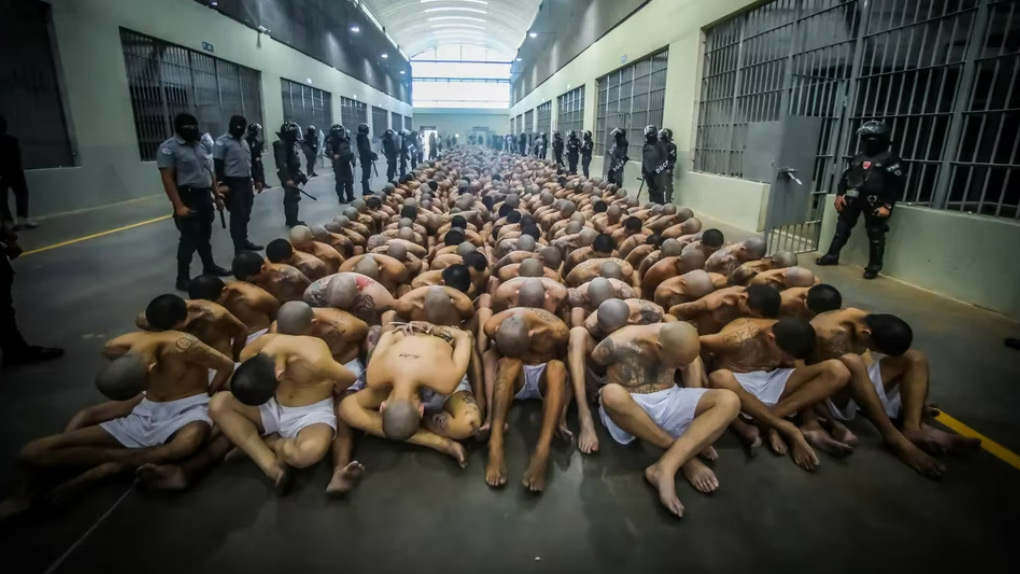
Also in prisons, emergency situation
When Ox declared a state of emergency, there were many alarms among human rights defenders, and one of them was the prison situation. Because before the detainees started counting thousands, the situation in the prisons was already worrying. By then, prisons had exceeded their capacity: They were full at 130 percent. The emergency situation has only increased: A study published in August 2022 by the UCA Human Rights Observatory Central American University revealed that prisons were at 247.6% of their capacity.
In these polemics came Bufete’s last pharaonic work. The Cecot Terrorism Containment Center was the name of the gigantic prison, known as “megacarela”, designed for 40,000 prisoners. It was built to be the largest in all of America and for the prisoners to be completely incommunicado. According to the latest data, there are about 12,000 prisoners. El Salvador is the most imprisoned country in the world compared to the population.
Wall dissidence
Olivares confirms that the country is polarized, that people become supporters or enemies and are right to do so. “It is essential to create enemies,” hence the anthropologist. The common enemy has been violence for all these years, and that is what they have faced it. But once, in theory, eliminating his threat, Buel seeks another new enemy: the human rights defender or, fundamentally, anything that does not fit with him. “Ox has used those of us who are part of civil society as guilty. Before they were the gangs, in their surroundings the idea of the enemy emerged, and it was true: but once they were arrested, we are the common enemy, the defenders of social rights.”
The anthropologist is clear that it is not random that many of the detainees are people involved in community processes. “It’s no coincidence because these people know their rights, they know that there are human rights courts. They have brought many very useful people to the communities: people who fought and resisted for land, who were doing political acts.”
Olivares conceives it as a strategy to silence their enemies, but not only that, but has also perceived the intention to completely inactivate social networks. The case of El Salvador is also special. For years they have suffered violent violence, gangs have threatened many people in the country. But the gang is not an isolated group: the gang is part of the communities, which causes great mistrust. “Pandilla is a structure, because every young man has his mother, his father, his uncle, etc., who are also within the structure in some way. That’s why it’s very sensitive.”
Recently, since the constitutional change, Bufete has also been attributed the desire to be an author or a dictatorship.
This feeling that there may be in the claws of the gang any person in the community, has made the fear widespread in the country and has prevented the penetration of society: “Our social fabric is almost nil because there has been a logic of mistrust for many years. This limits the stabilization of social networks and causes great mistrust that people are not part of community processes.” The situation caused the outbreak of the exception and further worsened the role of people who could believe in communities or social movements. “When everyone is disabled, in exceptional situations, he fears the slightest discrepancy. It can put you in a difficult situation,” says Olivares. Not little, and the first decision of the Bufete government was to allow the neighbors to report. “All it does is completely destroy the community bond. Any anger he has with his neighbors can take him to the police,” said the anthropologist.
In fact, the SSPS, to which Olivares belongs, and other human rights associations, have denounced their persecution and detention attempts. In this regard, numerous organizations and journalists have denounced that many detainees were taken by political activists or human rights defenders, not because they were part of the gang. “The one who has done nothing wrong does not have to be afraid, the one who is afraid would have done something,” Bufel repeated over and over again. Yes, they did: defend human rights. “He says that whoever defends human rights defends gangsters: human rights demand good prisons, demand justice, and Buel says there is no time for it,” Olivares summarizes the situation.
The case of Márquez's niece is also indicative of this. Marquez states that her nephew is intimately related to the community, a member of the country’s poorest and most underdeveloped department. Belonging to the Segundo Montes community, it has strong social networks and numerous associations and institutions. It was Márquez's nephew who participated in all his activities, always with support. Like her, Jaime Díaz, son of Araceli Ramos, is in the same situation. And his uncle, and his cousin. They are all part of the most peaceful community in the country.
Human rights defenders have attacked independent journalists in the same way. In the case of the digital newspaper El Faro, they have received espionage, defamation, threats and numerous complaints from the Ministry of Finance, to the point of forcing the newspaper’s headquarters to change country.
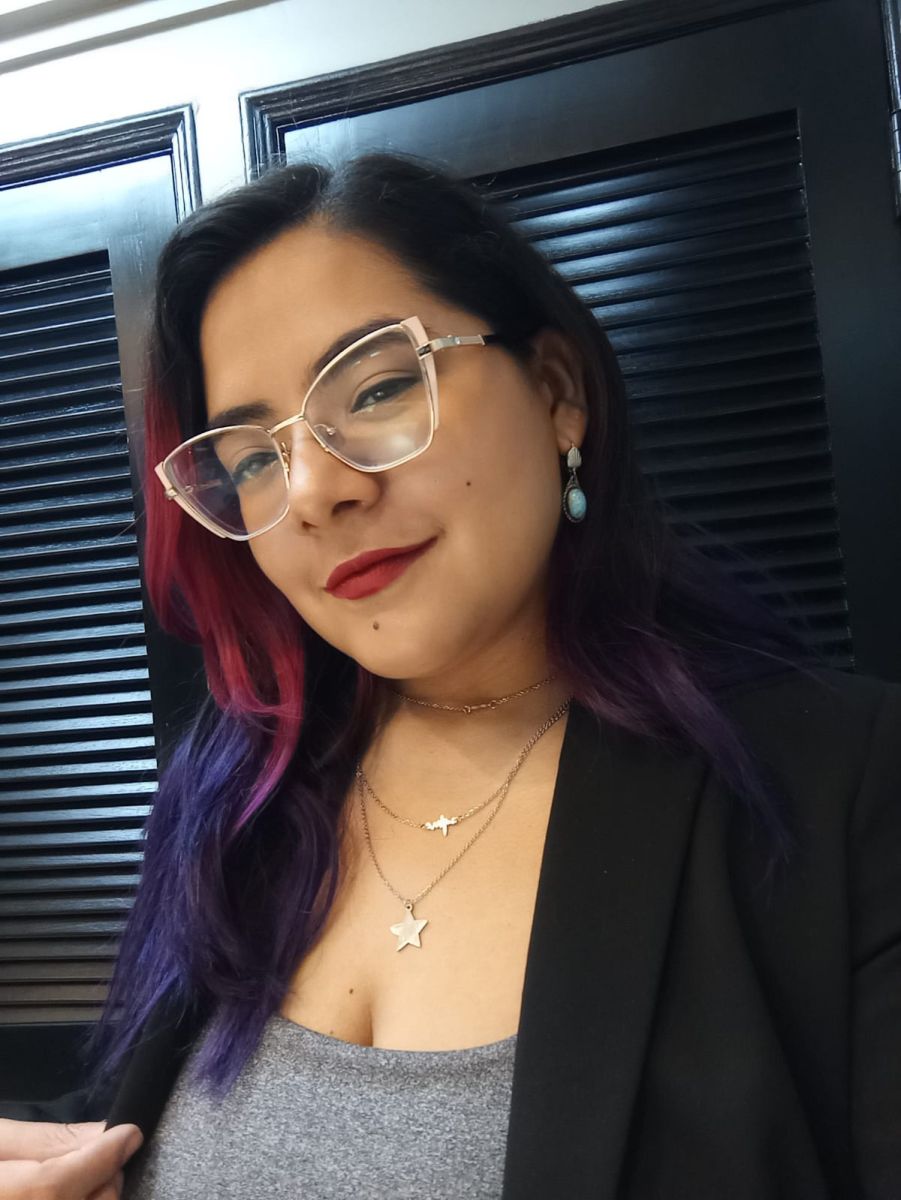
Uncertain future
Buel hasn't lost the success and fame he had five years ago, even sure he's won. His new political form and style gave him fame, the informal ways of addressing citizens were able to convey his message to people. From the beginning he received populist criticisms that used Twitter to make politics or used a fine irony against his rivals. In recent times, however, since the constitutional change, it has also been attributed the desire to be an author or dictator. “He and his family. They have power. It is the cult of a person and a family. That is dangerous, it is a messianic idea,” warns Olivares.
It is now to be seen what the other five years of Bufete can take. The prisoners of family members and their lawyers expect that after the elections, the courts will leave and people will start to go out into the street. However, with the parliamentary majority in your favour, we cannot expect a change of direction in the country.
1798ko Atzerriko Etsaien Legea aplikatu du, Washingtoneko epaile federal baten aginduaren gainetik. Ustez Tren de Aragua "talde terorristako" kideak dira; Bukelek eskatuta, Mara Salvatruchako 23 kide salvadortar ere deportatu ditu. El Salvadorko makro-kartzelara eraman... [+]








